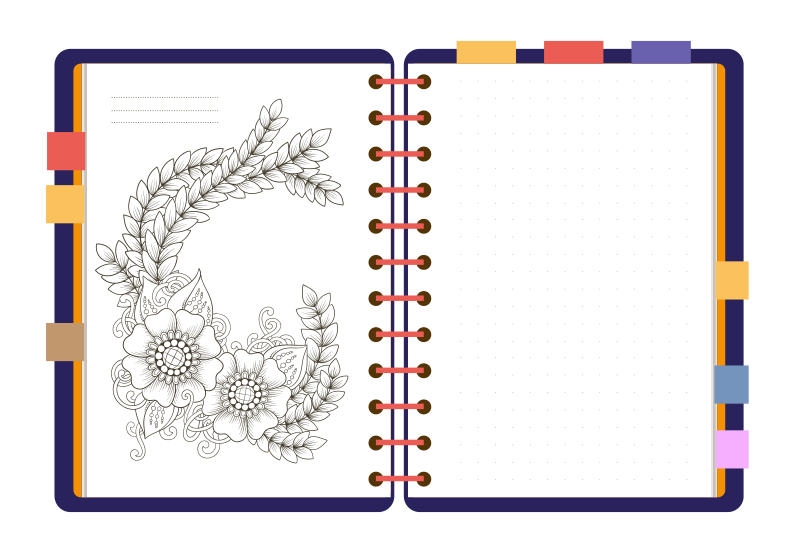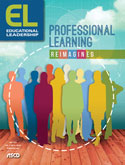OK, the school year is almost over. In retrospect, the year has gone by quickly, but it sure didn't feel that way in February. You've achieved some of your goals and others, well, you'll try again next year. You had hoped to work a bit less, and you hope you'll do better at that next year. Yeah, you have to work at working less. Although summer is a time for relaxation and catching up with family and friends (if they remember who you are!), it's also a time for recharging and preparing for the next school year. Summer will be over before you know it.
For me, summer can be a bit less productive than I'd like, probably because I'm less tied to a schedule. Although I enjoy that freedom, it doesn't always serve me well. So I've begun keeping a list of things that I need to do to prepare for the next school year. Here is my Top 10 Summer To-Do List:
- Thank everyone. Sure, I thank people during the school year, but it's often a fly-by thanks. I'm busy, you're busy, and thankyouverymuch! My thanks are sincere, but I may not have invested the time in them that I should have. Sending a handwritten note of appreciation to everyone on the staff, not just teachers, is smart and appropriate.
- Send a survey to parents. Ask what went well, what didn't, and what suggestions they might offer. I've done this for years, and I'm always taken by how well our parents know us, how fair they are in their feedback, and how many good ideas that they share. My surveys give them an opportunity to request a personal conversation with me, and those are always useful, too.
- Send a survey to teachers. Begin by asking what they're proud of. (Too often, we only focus on what didn't go well.) Then, gulp, ask for feedback on your performance. I get the best information not by asking teachers to identify my strengths and weaknesses, but by asking what I should stop, start, or continue. Those open-ended prompts yield candid responses and tell me how teachers perceive my actions.
- Ask the faculty to complete the sentence, "Our school should ______________." That open-ended, aspirational question is good for getting beyond the here and now and for helping people raise their sights. Yours might be raised, too!
- Schedule time to go through student data. Set aside at least a day, although if your attention span is like mine, two half days are better. How you define those data is up to you. The typical route is to look at test scores, and that has merit. How did this group compare with that group, where were the biggest gains made, and what intervention had the greatest effect? But you might go beyond that. What can you infer from your school's record of disciplinary actions or by perusing some student portfolios? How about randomly reading some students' report cards? How about asking your teachers what data you might examine?
- Turn off—or don't look at—your school e-mail account for <EMPH TYPE="3">three days. (Saturdays and Sundays don't count.) I know you'll spend the first day wondering what important messages you missed, but you'll learn that life goes on. By day three, you'll be wondering if you could go cold turkey for four days. Before you do this, think about what you might do with that extra couple of hours that you're not spending on your e-mail.
- Block out several times on your calendar for morning coffees or lunches with groups of teachers before you leave for the summer. You could bring together teachers who are completing their first year at your school, those from a particular department or grade, or faculty members who'd like to meet to talk about a particular topic, such as differentiation, diversity, or discipline.
- Step outside your comfort zone. I wrote about this in my column last May when I suggested that during the summer we venture away from the comfortable and test the waters of something unfamiliar. We don't learn as much from easy successes, so try something new and learn. It will be productive, even if you only learn how you respond to failure!
- Host a faculty book group. Offer two or three choices, and note that you'll provide food and copies of the book. When I do this, I consider it a success if I get a quarter of my faculty to join (although more is better). You could suggest a book written explicitly for educators, such as Turning High-Poverty Schools into High-Performing Schools by William Parrett and Kathleen Budge (ASCD, 2012), or a book with lots of implications for educators, such as Malcolm Gladwell's David and Goliath (Little, Brown, 2013) or Daniel Goleman's Focus (HarperCollins, 2013).
- Make a point to thank everyone again. Chances are you'll interact with most of your staff over the summer, whether in person or by e-mail. Sincere thanks are golden, and teachers always warrant signs of appreciation. We never want teachers to feel that we are taking them for granted.
Enjoy your summer. Feel free to shoot me an e-mail and let me know how you're doing, and I'll respond (even if it takes three days).

